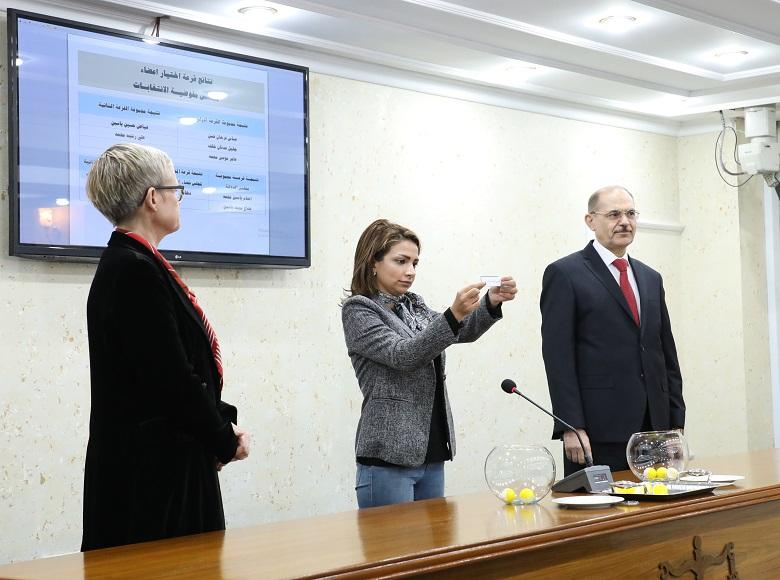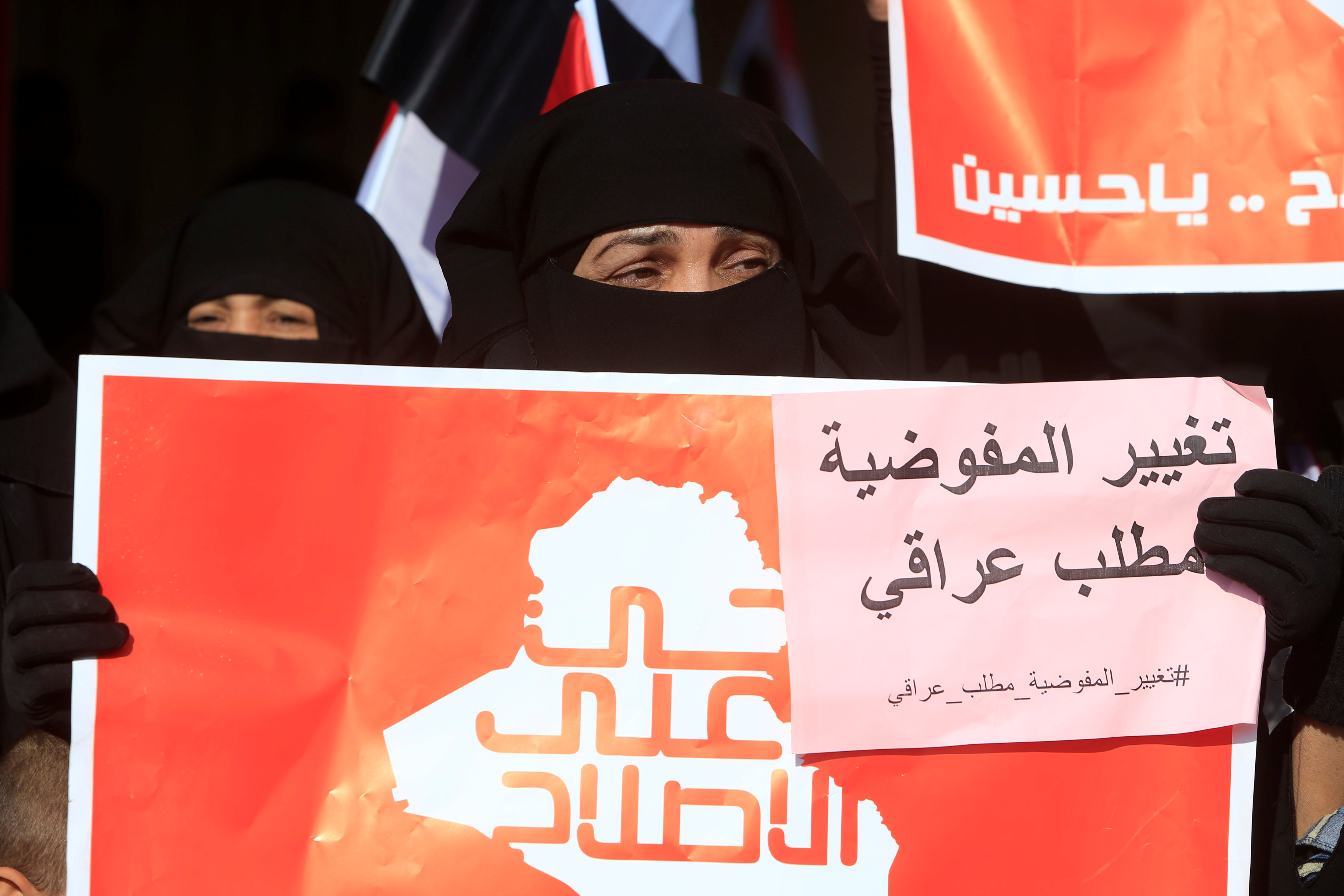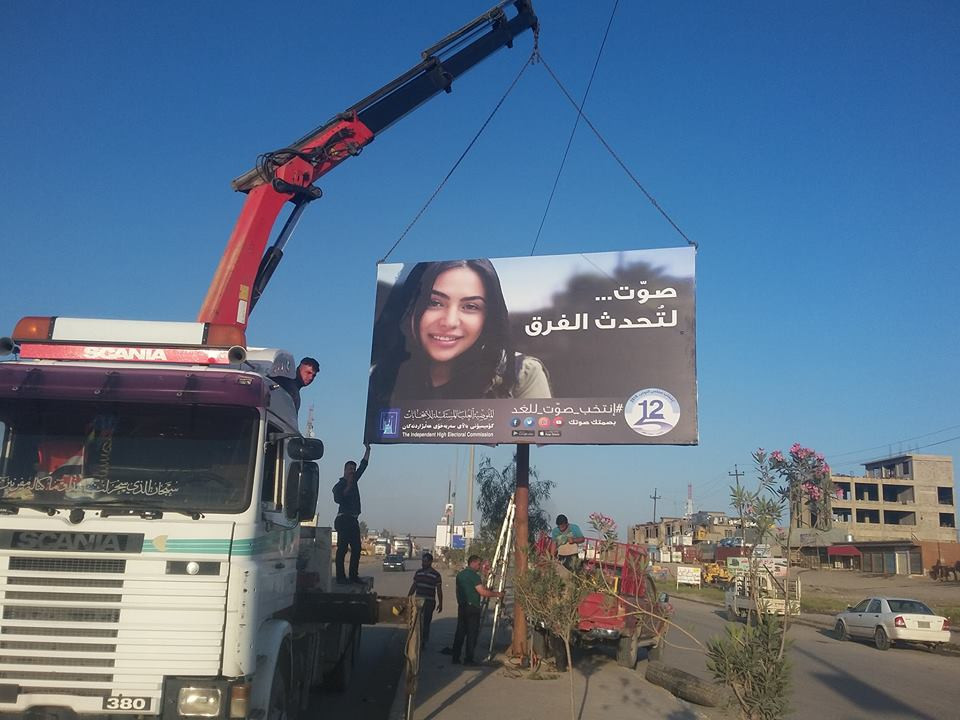The new law of the Iraqi Independent High Electoral Commission (IHEC) put an end to political parties nominees for the commission , memberships. It shifted the power to appoint members of the commission from parliament to the Supreme Judicial Council. Nonetheless, political parties appointed the judges.
The Iraqi Council of Representative in a majority vote passed the law last December as a response to the nationwide uprisings in the capital city of Baghdad and other provinces. The protestors demanded to change the commission and cut political parties’ hands in the institution.
The New IHEC Law
According to the new law, IHEC is an independent commission. It consists of two groups, which are the council of commissioners and the directorate of elections. The commission has nine judges.
The nine judges will elect head and deputy head and secretary of the council. Later, one of them will become head of the election directorate.
The law set a procedure to elect the members. There will be nominees of the Iraqi Supreme Judicial Court, Kurdistan Region’s Judicial Council, and the State Council. Later among the nominees, five nominees of the Iraqi Judicial Council, two nominees of the Kurdistan Region’s Judicial Council, and the two nominees of State Council will be elected in a lottery.
It also set independence and non-partisan as a condition, and women’s quota is also taken into consideration. These conditions even existed in the old law.

Baghdad, electing the nine commissioners by the Supreme Judicial Council in a lottery with the presence of the United Nations representative, 2019. Photo: Media office of the Supreme Judicial Council
The old law, passed in 2007, allowed political parties to have their nominee and submit their names to the parliament to vote on.
One term membership, based on the new law, is four years, and it cannot be extended. However, the old law did not have such conditions, and the term could have been extended.
A director will run the IHEC’s offices in the provinces. All the offices are directly connected to the national election directorate. Currently, the offices are administered by temporary acting directors until the new law reorganizes the offices.
Several articles of the new law are the same as those of the old law and have not been changed.
Two Solutions for Three Problems
Adil Lami, who served as the first director of IHEC from 2004 to 2007, stated that if the new law has solved two problems, it has caused the emergence of three issues.
“The old law had two biggest problems; one was electing the head of the election directorate by the council of the commissioners for a year which allowed the political parties to appoint someone annually.”
“The second problem was that the parliament elected the members that opened the door to the political parties to nominate persons based on their shares.”
He explained that the new law has solved two major issues to a certain degree.
“However, the new law contains several negative points, one of which is again electing the head of the election directorate by the council of the commissioners, but this time the term does not last in a year.”
The new law contains several negative points
Lami thinks that electing the candidates by the Supreme Judicial Council once more enables political parties interference because the judges are also elected based on political parties’ share.
Another problem of the new law is the judges are elected by the Supreme Judicial Court, which contradicts the Iraqi constitution, stating the IHEC independent and does not belong to Legislative, Executive, or Judicial branch.
A Longstanding Problem
Almas Fazil, a member of the Legal Affairs Committee in the parliament, believes that IHEC problems will continue because, in all elections, there are disagreements and doubts and some of which face the IHEC.
“The aim of passing the new law was to solve the previous law’s issues. Not only that law, but no law in this world guarantees the prevention of fraud,” Fazil stated.
Fazil states that “there were qualified commissioners in the IHEC and the current commissioners are also qualified, but let’s be realistic, the Iraqi an IHEC issues are political disputes that also affected IHEC.”
Does the New Commission Deliver the Protestors’ Demand?
Sarbast Mustafa, former IHEC director, thinks that a lack of the word “no partisan” in the name of the commission will again put the commissioners under questions and doubts.
Another citric, he says, is that the new commission has dissolved its offices in the province, and it is “a grave mistake, and there is a political incentive behind it to appoint partisan people for the offices.”

Iraq, a woman protestor asks for changing the IHEC. Photo: Reuters
“Four years has been set as one term of the commission, and it puts the commission under the authority of the executive branch because, with every new government, a new commission will be elected,” he said
He proposed that a committee of United Nations and Organizations experts should have interviewed and evaluated 90 nominees and among which they should have elected the nine commissioners. Later, the parliament should have voted on them.
Another problem, Mustafa claimed, is that the commissioners will remain in office for four years while the head of the election directorate will stay in place for five years, which “will make the head to enjoy a higher authority among the commissioners.”
“Generally, it appears that the political class and authorities have elected a commission that is in their interest. It is not meeting the demand of the protestors.”
Political Parties “Commission” to Judges “Commission”
The most significant change in the commission law is changing the commissioners from political parties members to judges, according to Aram Jamal, executive director of the Kurdish Institute for Election (KIE).
Jamal said, “yet these changes do not guarantee a free and fair election unless the new commission works professionally and implement the commission plans without political parties interference.”
Yet these changes do not guarantee a free and fair election unless the new commission works professionally
Jamal believes it is up to how the commission functions and it depends on the commissioners. As long as they are not independent and do not make decisions on their own, free elections will not happen regardless of how the election is conducted or what devices are used.
In a statement, the Iraqi Supreme Judicial Council stated that the judges, who are elected as commissioners of IHEC, will no longer have a role in the council.
Aram Jamal, who has observed elections for years, claimed, “the former commissioner did not work professionally and were not barriers to prevent fraud, but rather they dealt with the elections’ allegations fraud superficially. Eventually, they made the moves that the political parties liked.”
In the 2018 federal elections, IHEC was suspended with the allegations of fraud, and numerous judges replaced the commissioners. The members who oversaw the determination of the allegations. However, these measures did not change the results of the elections.
Judges Replace Qualifications
The election process of the commissioners previously depended on qualifications and expertise in the field, which is opposed to the current process, according to Salim Shushkai, a member of the Legal Affairs Committee.
Sushkai explained that former commissioner nomination went through a special parliament committee consisted of election experts. Besides that, the parliament approved and voted on them, but the current commissioners “do not have any expertise in elections.”
".Current commissioners “do not have any expertise in elections
However, “both commissions have a point in common which is the nomination of the commissioners of political parties’ shares.”

Nineveh, IHEC is hanging a poster to encourage people to go to the polls, 2018. Photo: IHEC Media
Shushkai thinks that the new commission law and the changes will not have any role, and the power-sharing among the political parties is repeated in the new structure of the commission.
“It is tough to hold a fair and free election by an unreliable commission,” Shushkai said.
The New Commission Guarantees Free, Fair, and Credible Elections
New Iraqi High Independent Election Commission, in its first statement issued in February 2020, guaranteed holding “a free, credible and fair election.”
According to the statement, after the appointment of head and deputy head, secretary, director of the election directorate of the new commission, their efforts, including renewing electoral lists and distributing biometric cards, have insisted on the preparation of the next elections.
“We work to restore people trust in the election process through the independent work of the commission, carrying out reforms, strengthening impartiality, transparency,”
KirkukNow attempted to interview the new commissioners for two weeks. They promised to talk to KirkukNow, but later some of them refused to give any speech, and the other did not pick up their phones.
The new commission also promised, “to reach highest election turnout in the next election.”





